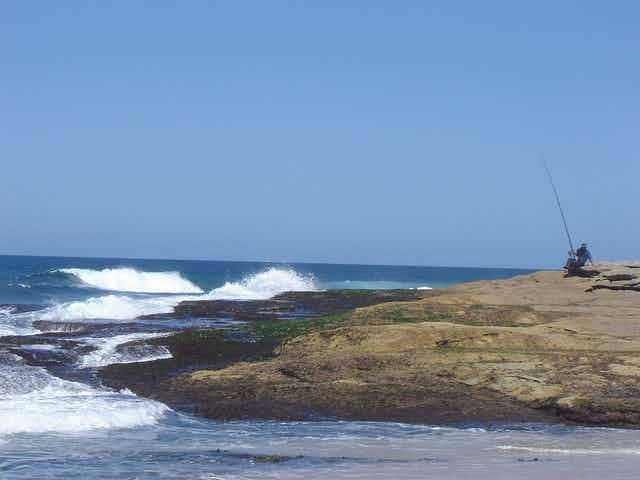The NSW Government’s announcement this week allowing beach fishing in sanctuary (no-take) zones of marine parks flies in the face of sensible conservation of precious marine biodiversity. It is a warning shot across the bows of marine conservation science.
Overwhelming scientific evidence indicates that sanctuary zones protect fish from fishing pressure, and may even provide a benefit to adjacent fisheries through adult or larval spillover.
Marine parks, unlike terrestrial national parks, are zoned for multiple uses, and already include “Habitat Protection” zones that cater for recreational fishing. In fact only around 20% of marine park area in NSW is no-take, so that only about 7% of the coast is protected from fishing. Now that appears to be reduced to zero.
The NSW Government was responding to the report of the Independent Scientific Audit of Marine Parks in New South Wales, delivered last year. Incidentally, this report makes no recommendation that fishing should be allowed in sanctuary zones. While the new allowances by the Government apply only to beach fishing, it is likely that other recreational fishers will demand equity, also calling for access to these previously off-limits areas.
It is a sad parallel with the new NSW Government initiatives to allow recreational hunting in land national parks, and is clearly a bid to court these powerful hunting and fishing lobby groups.
The government response also establishes a new Marine Estate Management Authority and a Marine Estate Expert Knowledge Panel to replace the existing Marine Parks Authority and scientific panels.
The Marine Estate Expert Knowledge Panel will take a broader perspective than the previous scientific panel, and will address economic and social issues as well as scientific, with regard to marine parks. However, given the main purpose of marine parks is to protect marine biodiversity, there is a risk that scientific assessment of the performance of marine parks in biodiversity protection may be de-emphasised.
The newly-appointed Chair, economist Dr Andrew Stoeckel, must maintain a full and close contact with the marine science community to ensure biodiversity issues and outcomes remain at the forefront.
NSW ranks poorly compared to other states in financial support of marine science, and this needs to be addressed to allow adequate resourcing of the ongoing monitoring and research projects that must occur.

